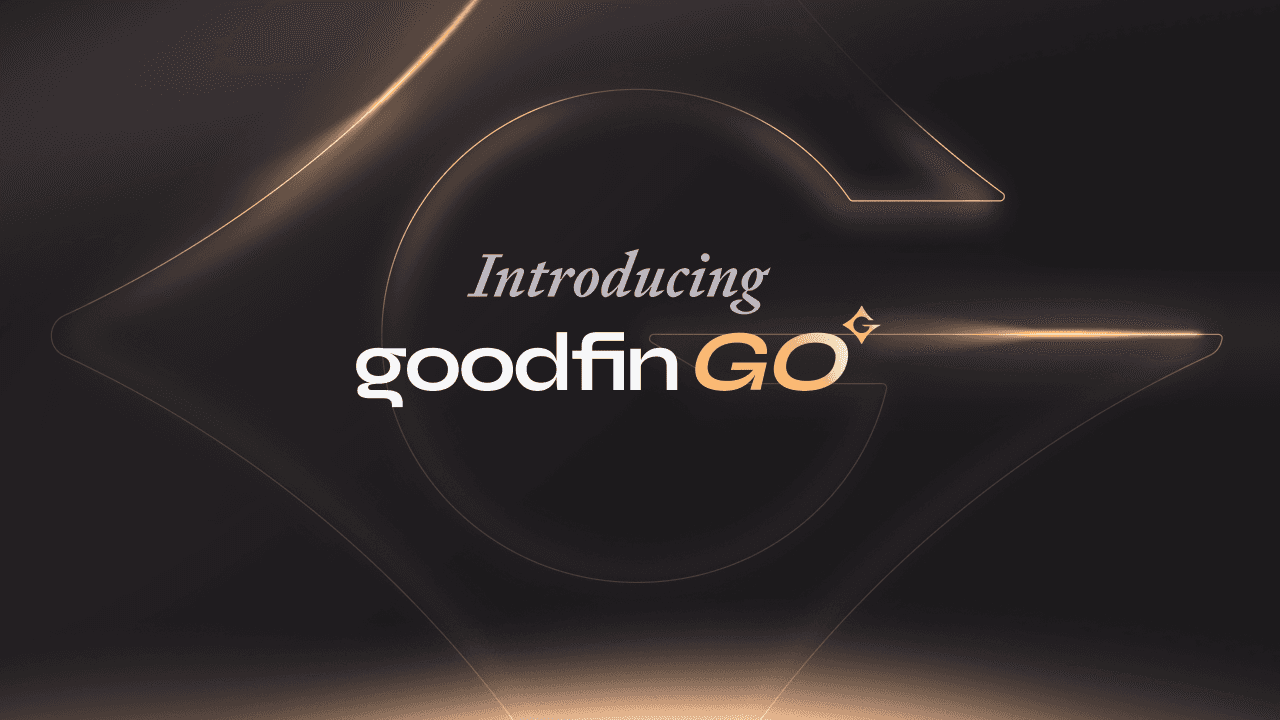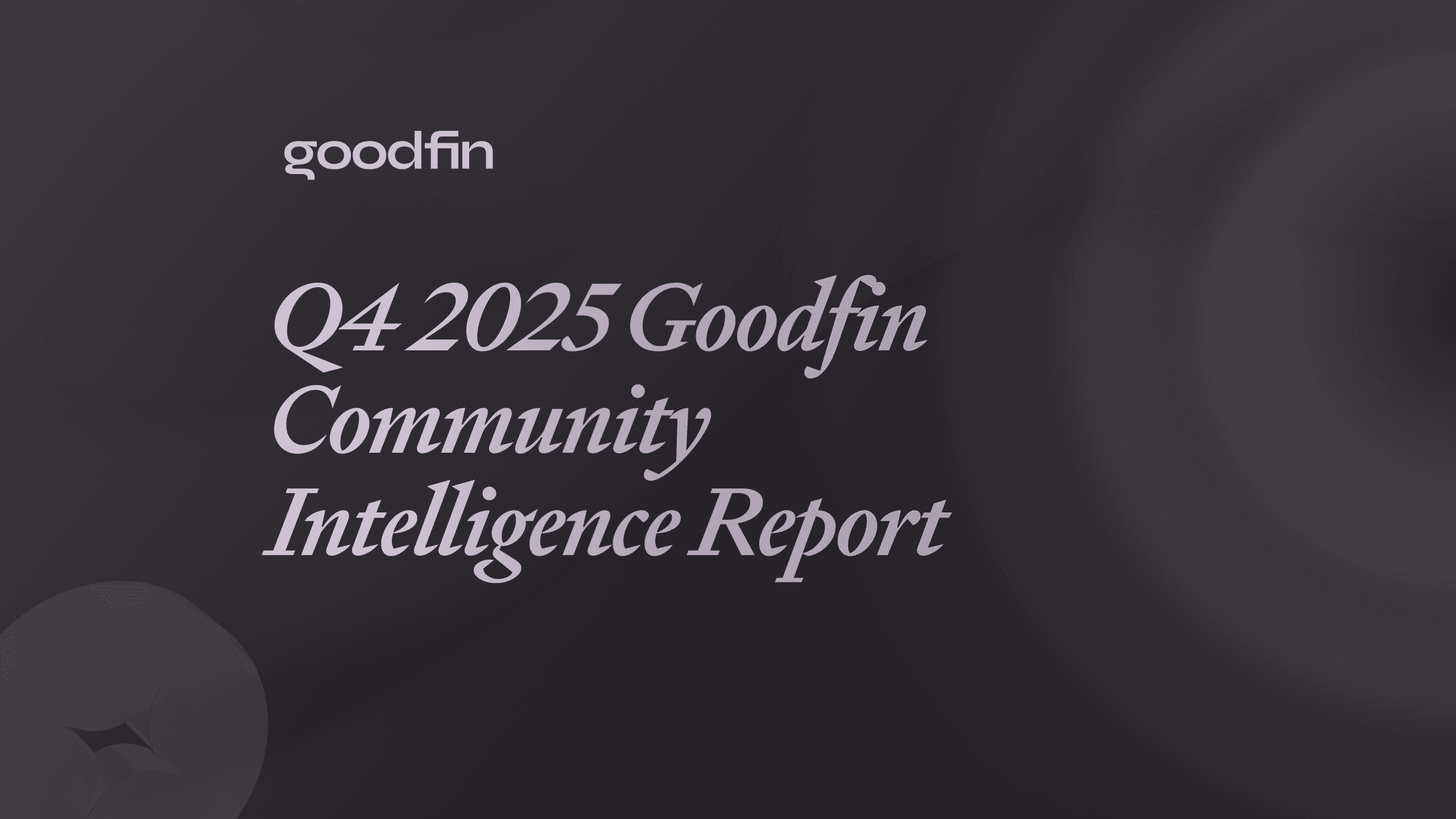Community
Sharath Kuruganty
Community Spotlight: Nick Raffin on Building Networks, Investing Philosophy and AI
Nick is the Founder, CEO and wearer of all hats at The Raffin Group (TRG), a technology solution for long-term investors who seek a full-service wealth management platform at low cost. TRG brings together a family office structure with best-in-class 3rd party capabilities to deliver a modern twist on the traditional financial advisor experience. Nick is a Goodfin Reserve member.
We sat down with Nick to talk about his journey, how he evaluates deals, his decision-making frameworks, and how he juggles being a founder while actively deploying capital.
You went from co-founding an AI lab in 2018 to becoming an active private investor. Walk us through that arc. What was the inflection point where you realized you wanted to invest alongside building?
Life has been fascinating, and very lucky! I grew up next to Stanford University, and have watched the town of Palo Alto transform from the early 90’s through today. My father was a tenured professor at Stanford before co-founding a prominent venture capital firm in San Francisco, and my mother came out of GSB before working at a VC; from an early age I was instilled with a strong drive to become an operator.
After graduating from the country’s top-ranked wealth management program in New York I ran a group within Merrill Lynch’s 5th Avenue flagship office. The firm trained me to serve as an investment advisor, private banker, lending officer and estate planner. In 2017 a colleague introduced me to a brilliant engineer who’d spent twenty years working for most of the top technology companies across the Bay Area. He asked for advice on a pitch to raise capital for an artificial intelligence lab, and in ‘embracing risk’ I became a co-founder and the first outside investor. We built an extraordinary team although there was a lot of turbulence. There’s nothing quite like riding the rollercoaster as a first-time founder!
How did early connections shape your trajectory, both as a founder and as an investor?
Building and maintaining relationships have formed the foundation of my luck. I went to high school on Vancouver Island in British Columbia, and whenever I’d come home it required consistent outreach to friends. I’ve maintained this practice of regularly checking-in with a diverse group of exceptional people, and have learned that building long-term relationships is a skill which can be cultivated.
I’m proud to have sustained friendships throughout my life, and last month celebrated the wedding of a buddy from Kindergarten. Today I constantly rely on warm relationships to open doors, source advice and receive help when times are tough. It’s also a joy to connect great people together!
You've invested significantly through Goodfin across multiple deals. What frameworks guide your decision-making when evaluating opportunities in robotics, AI, and deep tech?
Prior to deploying capital I follow an institutional process that incorporates due diligence and an investment matrix. Within private markets I’m searching for validation that the fund or deal - whether it focuses on private equity, private credit, private REITs, hedge funds, structured products, infrastructure, digital assets or it’s a single company – offers exceptional risk-adjusted return potential. Whereas within public markets there are clear fundamental and technical indicators that once converged provide insights into the probability of a successful transaction there’s typically a lack of alternative investment data. Goodfin shares excellent access to information which is one of many reasons that my firm regularly invests through the platform.
From an analytics perspective I’ll typically start with a global macro lens to locate the right country, and once selected it’s entertaining to drill down into industries followed by a review of all companies within a chosen industry. If the valuation is attractive and there are stronger tailwinds than headwinds for a deal related to robotics, AI or deep tech my firm will consider allocating capital.
When you look at a deal, what's the first thing that either excites you or gives you pause? Is it the technology, the team, the market timing, or something else entirely?
For an individual deal I’m first stoked simply to have investment access! Next I’ll review the current valuation relative to past rounds (net of fees), and consider the economic climate alongside the management team. If a company has cultivated a strong risk management culture it’ll innately spark my curiosity.
As an investor that’s been heavily influenced by books such as The Intelligent Investor I’m oriented towards discovering deep value; it excites me to source deals and perform at the highest level for clients. There’s a swell of energy every time a new deal hits Goodfin’s platform.
You're building in AI while also investing in the space. How does being an operator change what you see that other investors might miss?
I’ve had the pleasure of speaking with hundreds of elite founders, and after witnessing all aspects of startup life I’ve learned how unpredictable early builds can be. Across corporate formations, fundraising, hiring, firing, finances or scaling there’s ample room for unexpected issues to arise. I diversify my assets rather than place all eggs into one basket, but once a proven company hits critical mass I’m very happy to continue deploying capital into their growth. Being an operator has introduced a healthy dose of restraint into my decision-making process so I’m more skeptical of loud pronouncements! Follow the data alongside entrepreneurial hype.
Robotics and AI are having their moment. Where do you think most investors are getting it wrong or where are they missing the signal in the noise?
Admittedly I’m very dedicated to tracking technological developments. Where most investors might be getting it wrong is acting as siloed individuals since it’d be a full-time job to stay on top of industry advancements. The pace of technological progression is accelerating, and in an effort to stay up-to-date I created a ‘futurist’ WhatsApp group for like-minded individuals to post cool tech. By regularly interacting with a vast array of brilliant experts there are nuggets of truth which bubble to the surface, and this helps me understand the broader technology landscape. My advice is to source specialists in various fields, cultivate relationships over the long-term and lean on this network heavily to identify clear signals or opportunities.
You've backed companies through Goodfin that aren't always accessible. How do you build conviction in companies where information is scarce and access is limited?
Again I rely on a strict due diligence process alongside sourcing opinions from qualified friends. When PsiQuantum recently became accessible my first step was to seek advice from an engineer who’s worked on quantum chips at Rigetti Computing since 2018. Within five minutes he’d broken down the industry environment, provided an opinion on headwinds/tailwinds and guided me towards relevant resources. Goodfin has been very helpful in surfacing any available information that I’ve asked to receive although if there is low conviction due to scarce data I’ll always pass on the opportunity rather than risk assets.
What's one investment thesis you hold that would surprise people… something contrarian or non-obvious about where innovation is headed?
Many peers comment on the importance of human-to-human relationships, and how our innate desire to connect with other Homo sapiens will remain essential. I do agree that people will always gravitate towards relationships with other carbon-based organisms, but I also recognize that LLMs and new models will become increasingly likeable. If a highly personalized system is omnipresent, portable across all devices including humanoids and consistently supports us we might become closer to our AIs than any friend or family member. My thesis is that for children of the future their AIs will rank higher as ‘best friends’ than any other external point of connection. If proven true this has broad implications for the future of humanity.
Silicon Valley has a particular culture around information flow and access. How do you think about the value of being close to innovation versus the risk of echo chambers?
I advocate for interacting with many diverse networks to unlock clearer perspectives. It’s extraordinary how much can be learned from a one-on-one coffee hangout or walk around Stanford campus. I’ve still found myself occasionally thinking that a particular development will arrive quicker than reality allows (for example self-driving cars took longer than expected to appear), but by seeking advice from dissimilar areas it helps me tremendously to mitigate echo chamber risks. Many of my closest friends share opposite political and spiritual beliefs although we’re able to have respectful conversations that expand the mind. I’m grateful to be surrounded with diverse thoughts.
If you had to distill your approach to investing into 2-3 core principles, what would they be?
My approach to investing is very straightforward: seek low-cost, diversified and tax efficient opportunities. For an individual investor as an initial step I’d recommend examining all income, expenses, assets and liabilities in relation to life goals. One incredible software provider that can assist with understanding your fiscal status quo is MoneyGuidePro. It determines up to a 99% probability the likelihood of your achieving goals based on where you’re at, and with this data you can invest with minimal risk to earn the requisite capital. Alternatively if you have excess I’ll always recommend engaging in charitable giving. Combined with uncovering your time horizon and risk tolerance I’ve found the litmus test for whether an individual’s investment allocation is optimal coincides with their ability to sleep well at night regardless of market conditions.
You're juggling being a founder while actively deploying capital. How do you decide where to spend your time and attention?
I am grateful that my job is to deploy capital! Since there’s some abundance I’ve spent a lot of time in the nonprofit space, and through volunteer work I’ve found tremendous meaning so it’s a priority. This being said a CRM and Outlook run my entire life!! Since work is very engaging my natural inclination is to spend all waking hours supporting clients although I’ll also take a solo walk every day while engaging in some form of dedicated exercise. Carving out time to rest and tap into creative faculties is non-negotiable.
Last question - you're deeply embedded in both robotics and AI. Five years from now, what's the technology or company category that you think will define the next decade? Where are you placing your biggest bets?
I’m leaning heavily towards humanoid robots playing a massive role in our lives. As models increasingly understand our predictably irrational behaviors they’ll be able to permeate into almost every aspect of our lives. Imagine chatting with your preferred LLM at the computer, and having it port into a 5’7” physical robot in your home. The opportunities are endless especially for children as they are raised with a lifetime model that’s been available to them since day one.
—————————————————————————————————————————————————————
At Goodfin, smart investing starts with smarter insight. We're building an AI-first, high-trust home for GPs, operators, and allocators to share the tactics and tools that actually work. Join the conversation, explore member content, and start making your capital work harder—all inside Goodfin. → Join as a member




